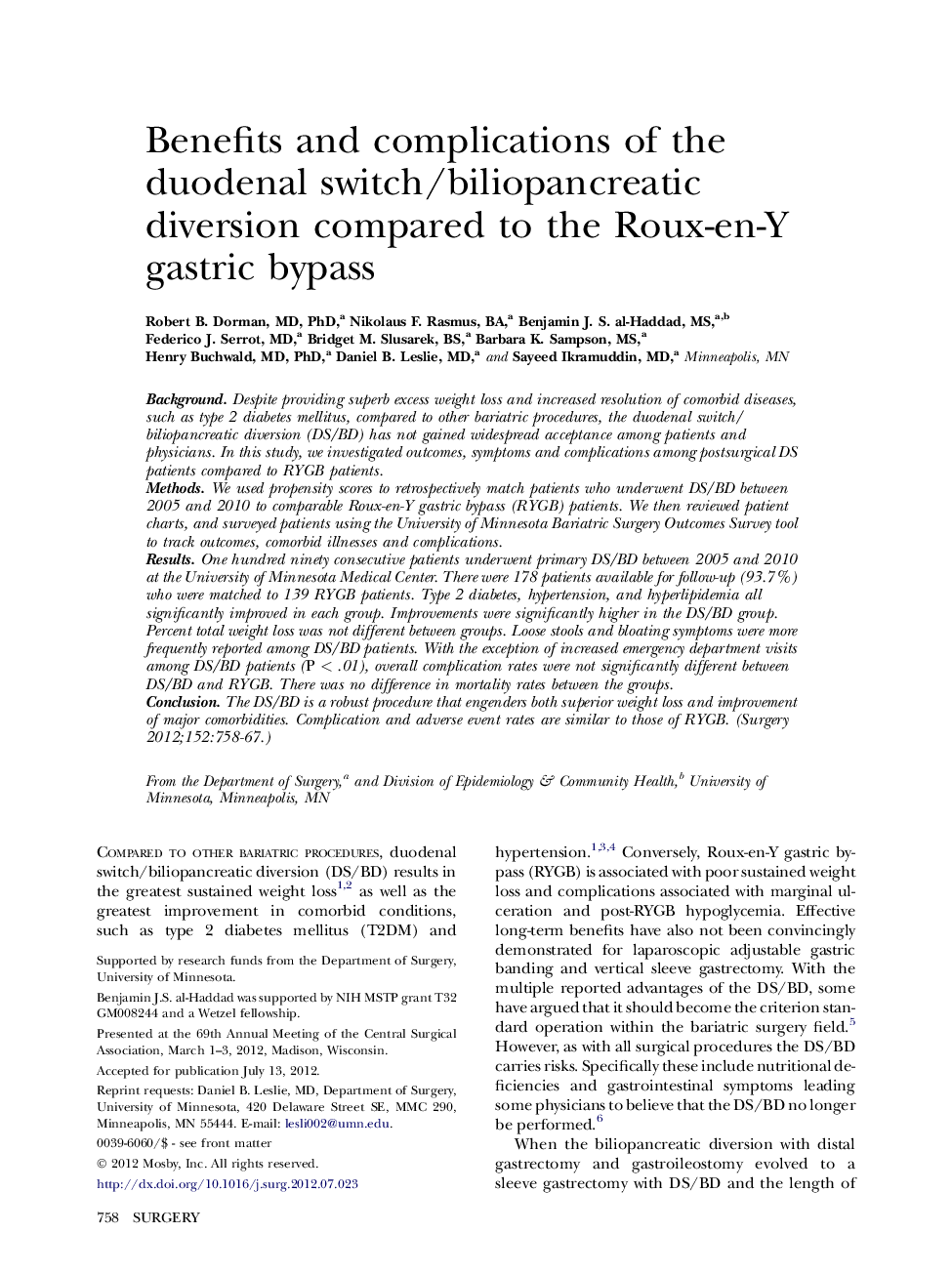| Article ID | Journal | Published Year | Pages | File Type |
|---|---|---|---|---|
| 4307844 | Surgery | 2012 | 10 Pages |
BackgroundDespite providing superb excess weight loss and increased resolution of comorbid diseases, such as type 2 diabetes mellitus, compared to other bariatric procedures, the duodenal switch/ biliopancreatic diversion (DS/BD) has not gained widespread acceptance among patients and physicians. In this study, we investigated outcomes, symptoms and complications among postsurgical DS patients compared to RYGB patients.MethodsWe used propensity scores to retrospectively match patients who underwent DS/BD between 2005 and 2010 to comparable Roux-en-Y gastric bypass (RYGB) patients. We then reviewed patient charts, and surveyed patients using the University of Minnesota Bariatric Surgery Outcomes Survey tool to track outcomes, comorbid illnesses and complications.ResultsOne hundred ninety consecutive patients underwent primary DS/BD between 2005 and 2010 at the University of Minnesota Medical Center. There were 178 patients available for follow-up (93.7%) who were matched to 139 RYGB patients. Type 2 diabetes, hypertension, and hyperlipidemia all significantly improved in each group. Improvements were significantly higher in the DS/BD group. Percent total weight loss was not different between groups. Loose stools and bloating symptoms were more frequently reported among DS/BD patients. With the exception of increased emergency department visits among DS/BD patients (P < .01), overall complication rates were not significantly different between DS/BD and RYGB. There was no difference in mortality rates between the groups.ConclusionThe DS/BD is a robust procedure that engenders both superior weight loss and improvement of major comorbidities. Complication and adverse event rates are similar to those of RYGB.
